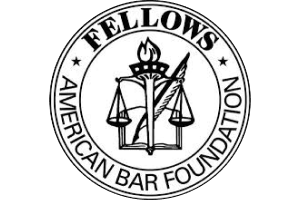Creating a Foundation for Your Future
Phoenix Immigration Waiver Lawyers
What is an Immigration Waiver?
Call Us Today 602-428-9999
Immigrants residing in Phoenix who are found “inadmissible” can be refused a green card and entry into the United States. However, there are certain “waivers” of inadmissibility available to qualifying non-citizen immigrants. The simplest way of thinking of a waiver is that it’s a request by an immigrant to the government to overlook or forgive a ground that would otherwise make the immigrant unable to enter or remain in the United States.
Waivers of inadmissibility are only available to certain non-citizen foreigners who meet the requirements. It’s important to note each type of immigration waiver contains strict requirements regarding who can apply and under what conditions. The applicant must submit detailed documentation and have a valid and applicable reason for the immigration waiver request.
Working with an experienced immigration attorney in Phoenix can help to ensure that your application for a waiver is correctly completed so you can avoid unnecessary delays or even denials. Having a skilled and experienced immigration attorney can make the difference between success and failure.
Types of Immigration Waivers
There are many types of immigration waivers available, depending on your circumstances. Some of the most common types of immigration waivers in Phoenix include, but are not limited to, the following:
- I-601 Waiver: This waiver is available to certain immigrants who are otherwise inadmissible due to prior criminal convictions, immigration violations, or other grounds of inadmissibility. This is typically for individuals who are applying outside of the United States.
- I-601A Personal Waiver: Also known as the “stateside” waiver, the I-601A Personal Waiver is for relatives of U.S. citizens who are immigrating to the U.S. It’s specifically designed for applicants who have been unlawfully present in the U.S. for 180 days or more but intend on traveling outside of the U.S. and need to return.
- I-212 Waiver: This waiver is for non-citizen foreign nationals who are currently outside of the U.S. and seeking lawful readmission into the U.S. after being removed.
- 212(h) Waiver: Gives immigration judges the authority to overlook certain criminal convictions that would potentially prevent them from obtaining lawful permanent residence status (green card).
- 212(i) Waiver: This is for noncitizens who have received any immigration benefits by fraud or willful misrepresentation and, as a result, are inadmissible to the U.S. The applicant must be physically present in the U.S. to apply.
- 212(d)(3) Waiver: Available to non-citizens who are seeking readmission into the U.S. for a short period after being deported due to criminal convictions or other types of immigration violations.
- 237(a)(1)(H) Waiver: A very specific waiver that targets individuals who knowingly immigrated to the U.S. as an unmarried child of a green card holder, even though they were actually married. It’s also for immigrants who came to the U.S. on a marriage visa, but their marriage was legally terminated without their knowledge.
The immigration waivers listed above are just a few of the most common types. There are many others available that fit a variety of situations. A skilled and experienced immigration lawyer will know what the right type of waiver is for a particular situation.
How Do I Get a Waiver for Immigration?
It’s important to note that filing an immigration waiver does not guarantee approval. However, it does provide the opportunity to continue your journey to eventual citizenship. The first step to obtaining an immigration waiver is to apply with the correct form.
The second step is to supply accurate and detailed information. How many additional steps after that depend on your circumstances and the type of immigration waiver you are requesting. Also, most immigration waivers require you to prove “extreme hardship” to a specific and close relative if the waiver is denied.
Generally, the immigration waiver process is long, complicated and can be frustrating. That’s why it’s recommended that you consult with an experienced immigration waiver lawyer in Phoenix before embarking on the journey.
How Long Does It Take for a Waiver to Be Approved?
It generally takes between 3 to 6 months to process Form I-601. However, wait times can be much longer depending on the type of immigration waiver, the current backlog, and many other factors. Working with an immigration waiver lawyer in Phoenix can help ensure that your application is not delayed due to errors or omissions.
What Happens After an Immigration Waiver is Approved?
While getting approved for an immigration waiver is typically the most challenging part of the journey, it’s still only the first half. Once approved, applicants must complete a post-immigration waiver approval process. That includes interviews, documentation, forms, and more.
If your immigration waiver request is denied, there may be options available to appeal the decision. Contact Best Immigration Lawyer today to discuss your case.







